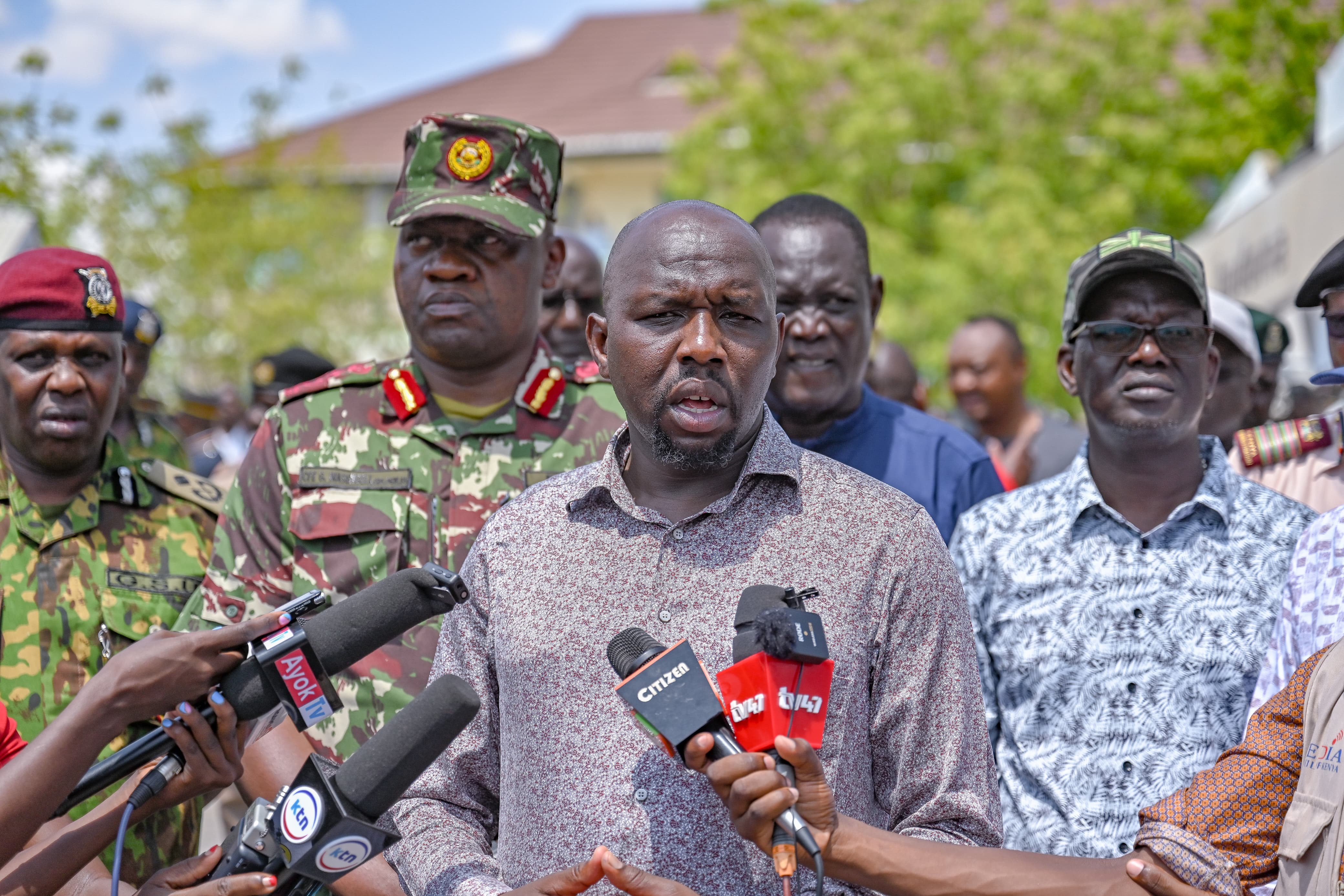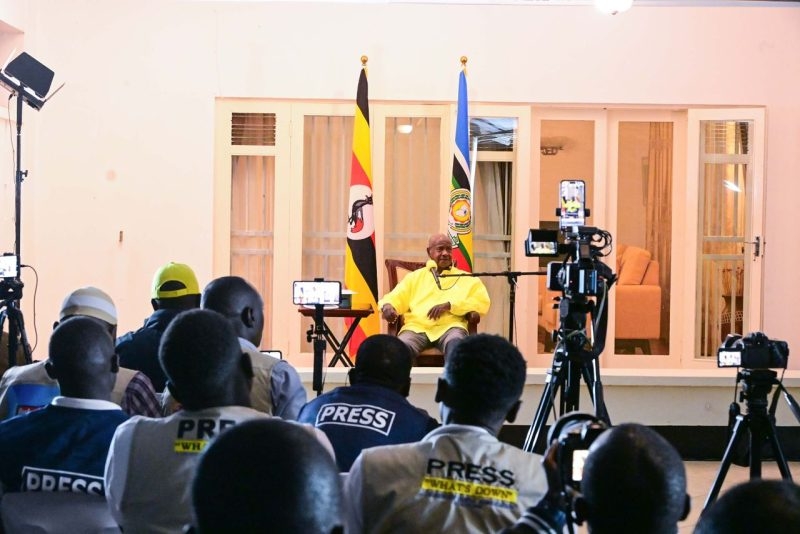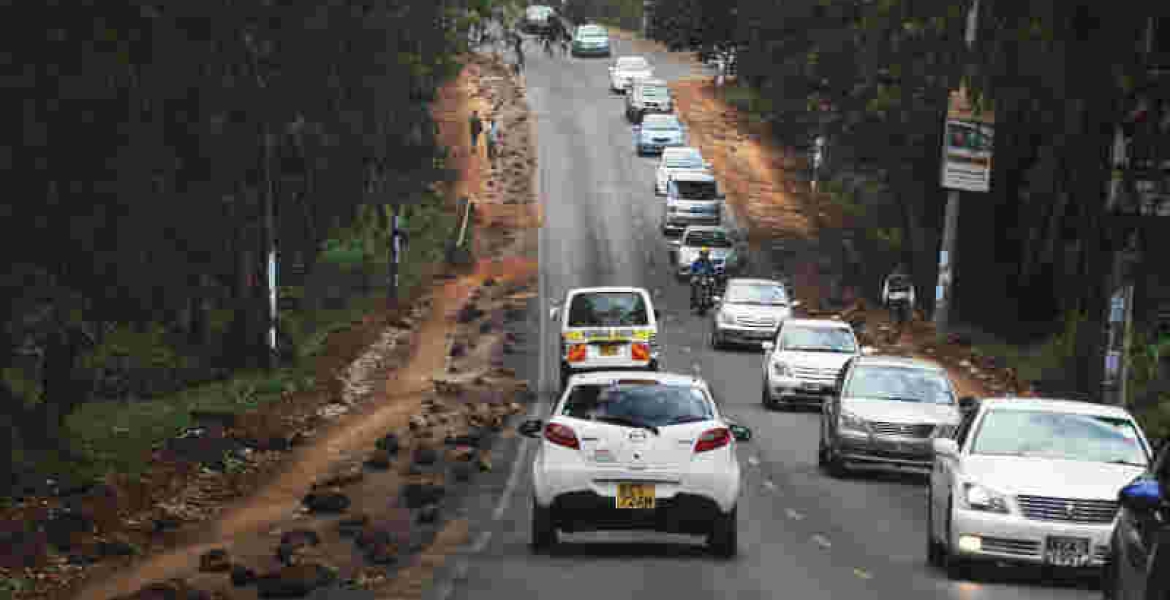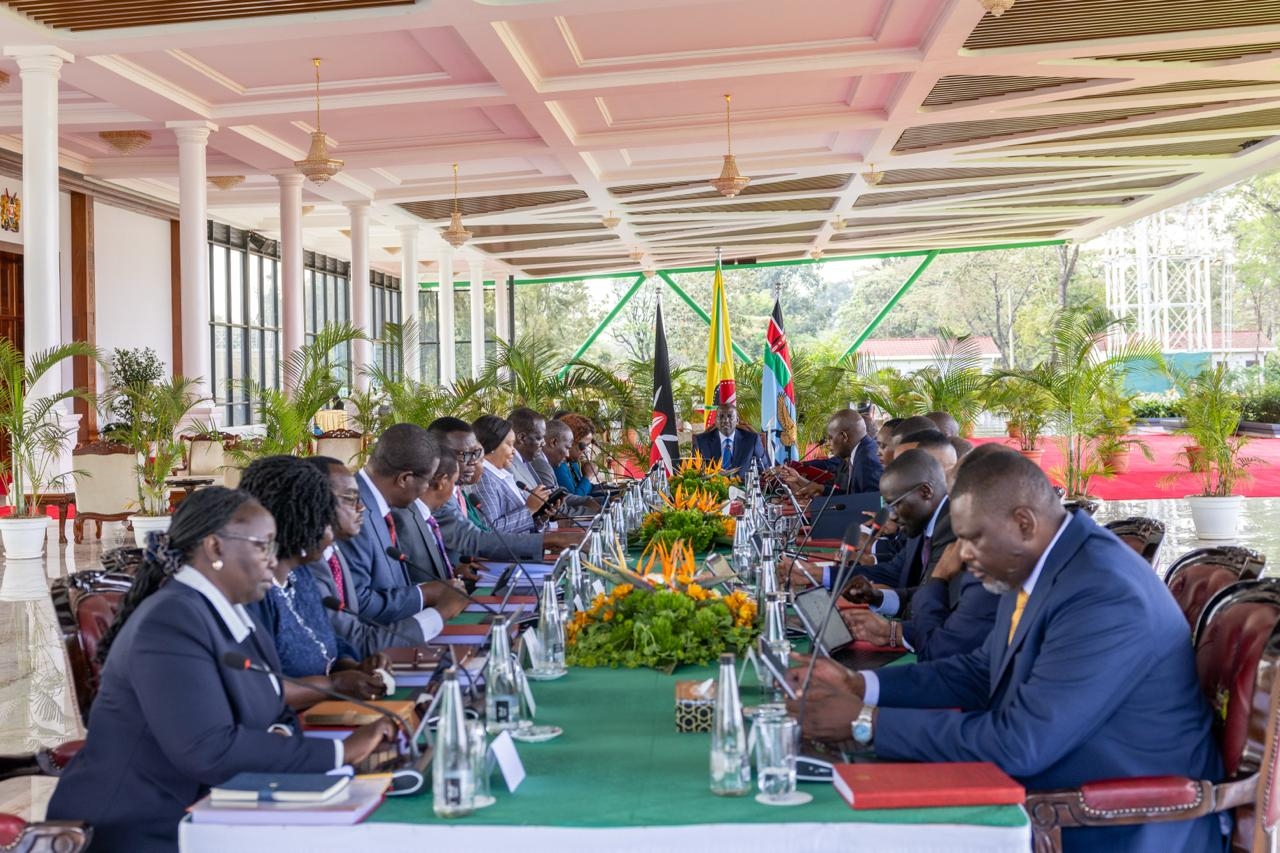
 Interior and National Administration Cabinet Secretary Kipchumba Murkomen with other top security officials and elected leaders during his visit at Lodwar on July 16 2025/Ministry of Interior and National Administration/X
Interior and National Administration Cabinet Secretary Kipchumba Murkomen with other top security officials and elected leaders during his visit at Lodwar on July 16 2025/Ministry of Interior and National Administration/XInterior Cabinet Secretary Kipchumba Murkomen has pledged to launch a new training programme for police officers across the country, aiming to equip them with modern skills and better prepare them for evolving security challenges.
Speaking in Lodwar on Wednesday, July 16, Murkomen noted that most police officers in Kenya receive no further training after graduating from Kiganjo Police College, unlike their counterparts in other departments such as the National Government Administration Officers (NGAO).
“When police officers leave Kiganjo, that becomes their last training,” Murkomen said.
“We train other officers like NGAO, but police officers get left out. Beginning this year, we will roll out training programmes to ensure all police officers — from the Officer Commanding Station (OCS) to those with responsibilities in the field — receive ongoing training.”
The Cabinet Secretary said the new training initiative will focus on equipping officers with skills relevant to modern-day policing, including digital literacy, diplomatic engagement, negotiation techniques, and proper use of force.
He emphasised that this will help officers understand not just when and how to use their firearms, but also how to protect both citizens and themselves during operations.
Murkomen revealed that President William Ruto, through the National Security Council, is already making budgetary provisions to support the programme.
He added that a lack of resources has been a key barrier to continued police training. While responding to questions in the Senate, the CS admitted that police training beyond Kiganjo has historically been limited due to financial constraints.
“There has been progressive growth in terms of the training of police officers. However, the truth is that, because of a lack of resources, the last training they have is when they were recruited,” he said.
Murkomen also pointed out that only officers who rise through the ranks or receive promotions typically benefit from additional training, leaving the majority without access to professional development.
“A large number of our police officers do not get promoted,” he said. “One of the things the National Police Service is pushing — and I will help them with it — is to ensure there is a proper budgetary allocation for the training of officers.”
The move is part of a broader effort by the government to modernise the country’s security apparatus and improve service delivery by law enforcement.
As security demands grow more complex, Murkomen stressed that officers must be prepared not just physically, but mentally and technically to serve the public effectively.















